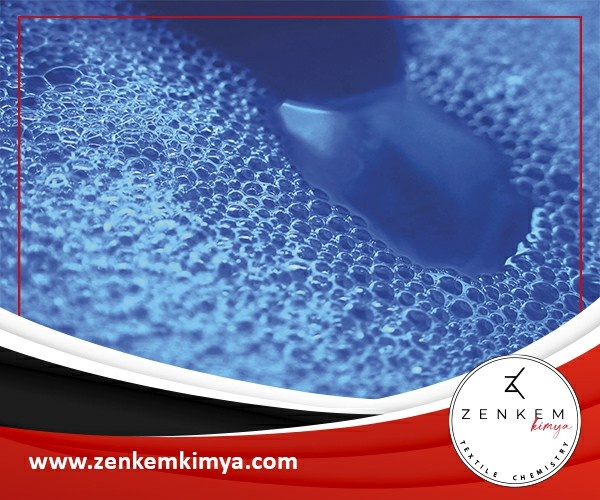The Future of Defoamers: Innovations and Trends in Foam Control Solutions
Wiki Article
The Duty of Defoamers in Enhancing Product Top Quality and Performance
Defoamers serve as vital ingredients that minimize this problem, making sure smoother manufacturing process while boosting the aesthetic and useful qualities of the last items. The selection of the ideal defoamer can be vital to achieving optimal outcomes, elevating important inquiries regarding formula compatibility and performance metrics that merit further exploration.Recognizing Defoamers
Recognizing the duty of defoamers is crucial for maintaining product quality throughout different markets. Defoamers are chemical additives created to prevent the development and decrease of foam in liquid systems, which can negatively influence procedures such as blending, loading, and surface stress. Frothing can result in inefficiencies, product flaws, and compromised visual allure, making defoamers a vital component in producing procedures.In commercial applications, defoamers assist to improve product uniformity and stability. The efficient use of defoamers not only makes sure smoother production procedures yet likewise contributes to exceptional product performance.
Furthermore, the choice and formulation of a defoamer need to straighten with specific application requirements, such as compatibility with other active ingredients, efficiency under differing temperature level and pH conditions, and potential governing constraints. Eventually, recognizing defoamers' functions and their value in different formulas is essential for maximizing production and making sure the best output.
Sorts Of Defoamers
Defoamers can be categorized right into a number of types based upon their structure and system of activity. The key types consist of silicone-based, non-silicone natural, and not natural defoamers.Silicone-based defoamers are among the most effective, mainly due to their capacity to spread swiftly on the fluid surface and interfere with foam development. Their one-of-a-kind chemical structure enables for superior stability, making them ideal for high-temperature applications and atmospheres with varying pH levels.
Non-silicone natural defoamers, often composed of natural oils or fatty acids, are valued for their biodegradability and lower poisoning. These are generally used in food and beverage applications where security and ecological influence are critical.
Inorganic defoamers, that include materials like talc or calcium carbonate, act by enhancing the density of the fluid, thus reducing foam stability. They are often made use of in commercial processes where compatibility with other materials is not a concern.
Each sort of defoamer has unique advantages and constraints, enabling tailored services depending upon the certain frothing concerns run into in different applications. Comprehending these differences is important for optimizing efficiency and attaining preferred product top quality.
Applications Throughout Industries
Various industries utilize defoamers to improve product top quality and operational efficiency. In the food and drink industry, defoamers are crucial in procedures such as brewing and milk production to avoid foam development, which can cause inadequacies and product inconsistency. By managing foam, manufacturers can make certain much better return and a more uniform item.In the pharmaceutical industry, defoamers play an essential role in the solution of liquid drugs, where excessive foam can hamper mixing and precise application. Their use aids maintain the stability of the solutions and helps with smoother manufacturing processes.
The paint and layers industry likewise depends on defoamers to boost the performance of items throughout application. By reducing foam, these ingredients make certain a smoother finish and improve the visual qualities of the end product.

Benefits of Utilizing Defoamers
While the application of defoamers varies throughout industries, their advantages consistently enhance item quality and process performance. One considerable benefit is the decrease of foam formation throughout making procedures, which can otherwise lead to manufacturing hold-ups and disparities in item high quality. By lessening foam, defoamers allow a smoother flow of materials, helping with extra effective operations and reducing the possibility of tools malfunctions.Additionally, using defoamers can boost the appearance and appearance of last items. In sectors such as finishes, paints, and food handling, excessive foam can endanger the aesthetic aesthetics and total high quality, while the suitable defoamer application guarantees an uniform finish and desirable characteristics. Defoamers can add to set you back financial savings by decreasing waste during manufacturing and optimizing the use of raw materials.

Selecting the Right Defoamer
Picking the ideal defoamer is important for enhancing manufacturing procedures and ensuring product high quality. The option of defoamer influences not just the performance of foam control however likewise the overall efficiency characteristics of the last product. Aspects to think about consist of the type of application, the chemistry of the formula, and the ecological problems under which the product will be used.Various industries might need particular defoamer types, such as silicone-based, organic, or polymeric defoamers. Recognizing the compatibility of the defoamer with the main active ingredients is important to stay clear of adverse responses that might compromise reference item honesty. Furthermore, the defoamer's effectiveness in different temperature levels and pH levels should be evaluated to make sure consistent efficiency.
Examining the defoamer in small-scale applications can provide beneficial understandings into its performance and suitability. Factor to consider of governing conformity, particularly in food, drugs, and cosmetics, is vital in picking a defoamer. Eventually, a complete analysis of these variables will certainly cause the selection of a defoamer that not just controls foam properly however also enhances the quality and performance of the last product.
Final Thought

In verdict, defoamers are necessary ingredients that dramatically enhance product high quality and performance throughout numerous sectors. The critical selection and application of defoamers lead to cost savings, optimized resource usage, and boosted consumer complete satisfaction.
Lathering can lead to inadequacies, product defects, and endangered aesthetic appeal, making defoamers a crucial part in producing operations.

Report this wiki page